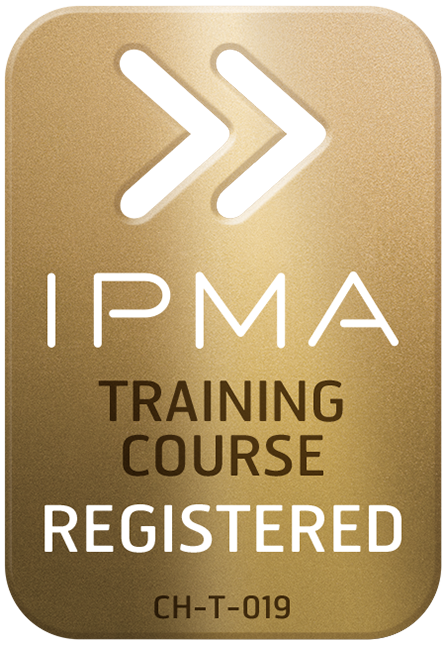IPMA Level D Certification Preparation
IPMA® offers certification on 4 different levels which demonstrate your proficiency in a variety of competence areas divided into the three domains “People”, “Practices” and “Perspectives”.

IPMA
Level D

Preparation for IPMA Level D®
Learning approach
Advantages
Purely focused on certification preparation to make best use of candidate’s time
Experienced and certified coaches who lead you through the entire process
Exam preparation with a unique exam simulator including more than 350 exam-like questions
Fully aligned with the public certification cycle offered by the Swiss certification body vzpm
Delivery
Price per person
- Level D: CHF 2’750.- + VAT
Exam fees are not included and will be paid direclty to vzpm.
For in-house courses we will gladly prepare an individual offer.
Languages
English, French and German
Delivery and duration
Individual coaching done primarily through virtual sessions – adapted to the need of the candidate. For several candidates of the same company, the preparation process can be grouped and aligned to the specific training needs.
Dates and location
On demand
Audience
Project managers who wish to accredit their knowledge with an internationally recognized IPMA® Level D certification.
Prerequisites
1
Project management experiences according to the requirements of IPMA®.
- Project management experiences according to the requirements of IPMA®.
Learning objectives
have acquired the relevant project management knowledge about the technical, behavioral and contextual competences according to the IPMA Individual Competence Baseline – Version 4 (ICB4);
be ready to pass the certification exam
Methodology




Content
- Perspectives – which cover all aspects of the project environment such as the strategy, compliance, power, culture etc.
- People – which cover the soft skills including, but not limited to Self-management, communication, teamwork, leadership, conflict and crisis, etc.
- Practices – which cover all the practical knowledge and skills to manage a project such as design, objectives, scope, time, finances, resources, risk, stakeholders etc.





